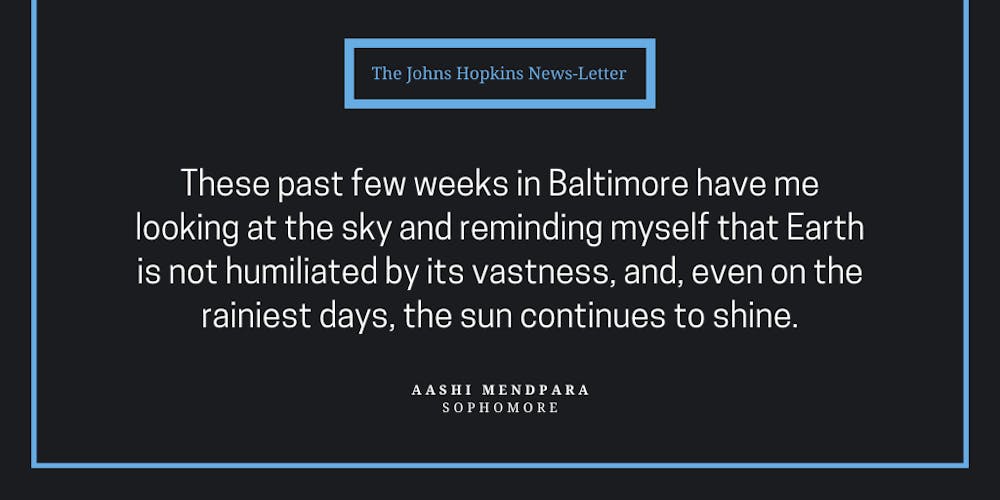
On Dec. 31, I laid in my bed and typed out all my New Year's resolutions. I had spent nearly thirty minutes looking for my journal — all to no avail — so my notes app had to do.
This was a yearly tradition. I loved the feelings of giddiness and excitement that inevitably came every December as I set lofty goals for myself and hoped that this time would finally be my moment of transformation.
My expectations are always the same: this year’s list of resolutions will be a metamorphosis that will shoot me into a year of daily self-reflection.
Every year, I make a laundry list of the things I want to do, and every year I only complete one or two of them. I’ve come to accept this reality as part of what makes New Year’s resolutions so fun: I never know if I’ll follow through, but I’m willing to try anyways.
While I had my customary “sleep more,” “drink more water” and “read 52 books!” (yes, it’s possible, and yes, I’ve done it before), there’s been one that has consumed my mind this past month.
“Learn to be kind to yourself.”
I have an interesting relationship with the concept of self-compassion.
I don’t believe in affirmations, but I’ll still look in my mirror every morning and repeat “I am love, I am worth” and whatever else I can think of to imbibe the values that I dream of attaining.
I don’t believe that I need positive reinforcement to keep myself afloat, but I still keep a tally of my tiny successes as a self-reminder that I can accomplish the things I have dreamed of doing since I was a child.
And I don’t think meditation has done anything for my inner peace, but I still drag myself out of bed to sit cross-legged on my bedroom floor and listen to my meditation podcast (my mom would be proud of this one).
It’s interesting to think that, although I don’t believe in many practices labeled as acts of self-compassion, I still do them because they are my way of attempting to intentionally practice self-love.
Like many other students at Hopkins, hypercriticism and perfectionism is basically second nature to me. I’ve spent hours agonizing over clumsy sentences I’ve said to men and days thinking about mindless mistakes I’ve made on exams.
Yelling at myself seems to be easier than letting myself feel the emotions I so desperately want to feel.
Until very recently, I never stopped to think about how I police my everyday emotions and very existence. Whether that be calling myself dramatic over my tears from a spilled cup of coffee or telling myself I’m a fraud over my inability to solve math problems, my daily thoughts consist of a montage reel of mistakes that have kept me from achieving my ideal self.
And while I haven’t kept many New Year’s resolutions in the past, this is one I have promised myself to honor.
It’s okay to feel things. It’s okay to be embarrassed over the way you stumbled running down (yes, down) the stairs for your 9 a.m., angry at the world when your favorite cafe is out of your favorite drink or miserable when you wake up to the murmuring of the rain through your bedroom window.
It’s not okay, however, to diminish or shrink or fold into spaces far too tight because of our reluctance to comfort our mistakes with patience and gentleness.
These past few weeks in Baltimore have me looking at the sky and reminding myself that Earth is not humiliated by its vastness, and, even on the rainiest days, the sun continues to shine.
Even on my worst days, I am capable of helping others feel understood. It’s time I realize that I deserve a little understanding from myself, too.
Aashi Mendpara is a sophomore from Orlando, Fla. studying Neuroscience and Anthropology.

















